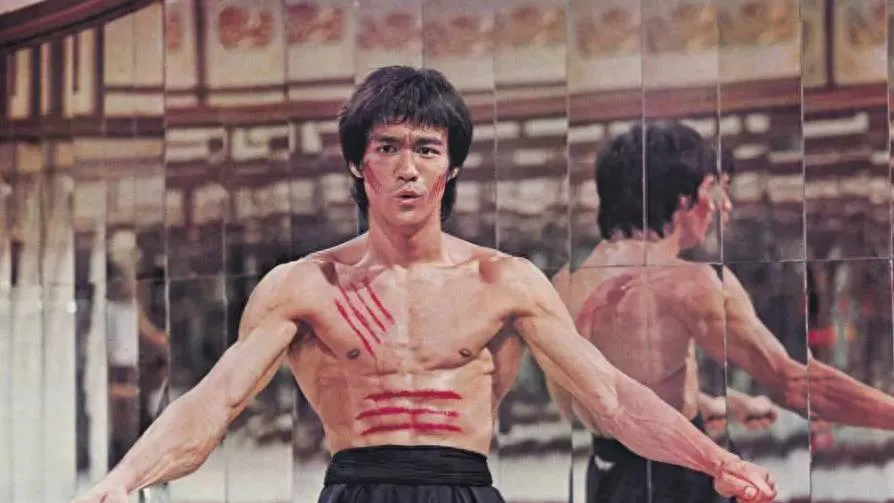The Untold Story of “Fist of Legend”: A Classic That Defied Box Office Expectations
Jet Li’s exceptional acting and the film’s innovative action choreography captivated audiences. But why did this now-classic film initially fail at the box office? Some suggest that the release of “Fist of Legend” coincided too closely with “Drunken Master II,” creating competition for viewers. At the time, “Drunken Master II” was already a well-established action film, while “Fist of Legend” was a new brand yet to gain widespread recognition. Furthermore, the film’s marketing campaign was considered insufficient.

Compared to the extensive promotion of “Drunken Master II,” “Fist of Legend” had a relatively low-key marketing strategy, contributing to its initial box office disappointment.
A Timeless Classic: “Fist of Legend” Still Resonates
Decades later, “Fist of Legend” remains a beloved classic. In 2019, the film was re-released in mainland China, drawing significant attention from moviegoers.
Even after countless kung fu films with diverse styles, the action choreography in “Fist of Legend” continues to impress. Iconic moves like Chen Zhen’s “one-finger Zen” have become staples of Chinese kung fu cinema. The film also showcases the allure of traditional Chinese culture. Chen Zhen embodies the power and beauty of Chinese martial arts, as well as the values of respecting teachers and honoring tradition.
These values—diligence, resilience, respect, and gratitude—are deeply ingrained in Chinese culture and resonate with audiences. This is why “Fist of Legend” has become a cherished classic.
In conclusion, “Fist of Legend” is an exceptional film. Despite its initial box office struggles, its impact is undeniable. The character of Chen Zhen, the memorable action sequences, and the emphasis on respecting traditional culture have become iconic elements of Chinese kung fu cinema.
The Iconic Showdown and Underlying Reasons for Box Office Underperformance
The final duel between Chen Zhen and Fujita is one of the most captivating scenes in “Fist of Legend.” The contrast between Fujita’s ferocity and Chen Zhen’s agility creates intense tension, making each move feel impactful. But the fight is more than just “violent aesthetics”; it’s an exchange of martial arts philosophies. Chen Zhen’s encounter with Funakoshi Takeo, blindfolded, explores the essence of martial arts on a spiritual level, leaving a lasting impression.
The film’s box office failure can be attributed to two main factors: a lack of established IP and insufficient entertainment value.
Lack of IP Recognition
The absence of a strong IP was a significant factor in the film’s initial performance. The top-grossing Hong Kong films of that year relied heavily on pre-existing intellectual property.
“From Beijing with Love” capitalized on Stephen Chow’s comedic style and the 007 franchise. “Drunken Master II” benefited from the popularity of Jackie Chan’s Wong Fei-hung character. “God of Gamblers II” brought back Chow Yun-fat’s iconic gambler persona. These films achieved high box office returns by leveraging established IP while maintaining high production quality.
In contrast, “Fist of Legend” lacked the same level of IP recognition. While there were previous “Fist of Fury” films starring Bruce Lee and an 80s TV series, “Chen Zhen,” the time gap diminished their impact. The story also lacked originality, failing to attract a wider audience.
Insufficient Entertainment Value
The film’s release during the Christmas season, typically a time for family-friendly entertainment, also contributed to its underperformance. Audiences were more inclined to watch films with strong entertainment value.
While “Fist of Legend” is an action film, it lacked the entertainment elements of its competitors. “Drunken Master II,” for example, was a kung fu comedy featuring Jackie Chan incorporating breakdancing and street dance elements. The Drunken Eight Immortals choreography was fluid, dynamic, and humorous, captivating audiences. The film also featured cameos from stars like Anita Mui, Ti Lung, Andy Lau, and Weng Hong, enhancing its entertainment value. “Fist of Legend,” in comparison, appeared relatively austere.
Despite its box office struggles, “Fist of Legend” remains a classic action film. The fight scenes are intense and captivating, showcasing the exchange of martial arts philosophies. The final duel between Chen Zhen and Fujita is unforgettable. Despite lacking IP recognition and entertainment value, “Fist of Legend” is a classic worth watching, offering insights into martial arts and the spiritual power behind each move.